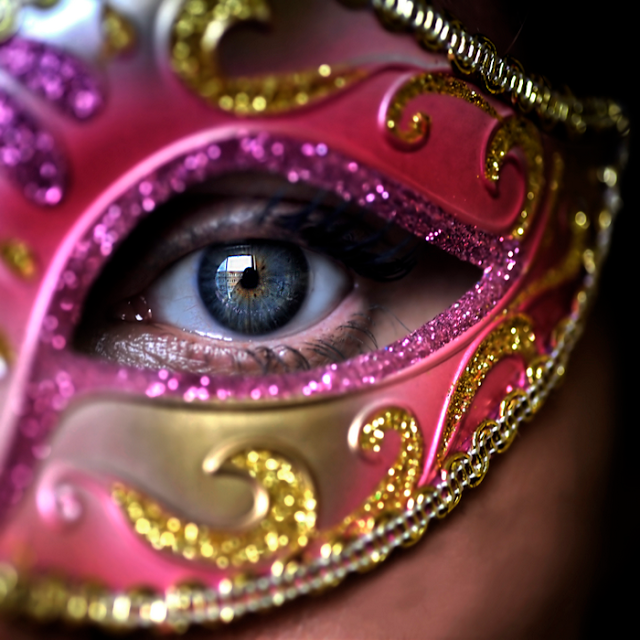
We live in a culture that prizes being “authentic.”
How many times have you heard the call to “be true to yourself?”
If you think about it, some version of that advice (instruction?) appears in so many different contexts, and relates to our most important decisions—in our relationships, and in our careers, to name two. But this all points to how frequently we mask things about ourselves.
We all have something that we don’t want others to see. Our vulnerability feels scary, so we develop ways of hiding it. But what do we do when the mask slips, or begins to fall apart?
Keeping up appearances, and coping with the pressure it brings, can become a real struggle. We start to manifest our stress in certain ways, from grinding our teeth, to blushing, to panic attacks. Clients who come to see me have often identified those manifestations, which is itself a huge step.
I took that step myself, after the strain of holding up the mask became too great. I grew up in an extremely abusive household, and believed myself to be damaged as a result.
There are two common alternatives faced by people who’ve experienced this: the self-destructive way, and the way of invisibility. I went for the second. I spent most of my life trying to seem as “normal” as possible. I got good marks at school and uni, and did all the socialising like everyone else. I tried constantly to be upbeat, funny, good company. I hid, pretty successfully, the pain I was in.
The crucial thing is, I didn’t think I was even wearing a mask. I thought I was coping—maybe even “being true to myself.” That was until I started having panic attacks and developed chronic fatigue. It got harder and harder to keep up the pretence.
Of course I tried lots of ways to alleviate these symptoms, focusing on healthy living, and trying to slow down sometimes. These offered some temporary respite. But it wasn’t until I came across cognitive hypnotherapy that I grasped the underlying belief behind these superficial symptoms (not that they felt superficial at the time). I was supported in changing that belief by people who saw something in me that I didn’t see. They saw who was behind the mask, in all my vulnerability.
It felt like a weight being lifted: it was truly life-changing, and now all aspects of my life are different—my relationships, my career, my sense of the future and my own potential. And all because of a series of simple, but powerful questions.
Now I coach others to make that change.
It’s an amazing privilege really to see people in this way, and to help them see past their own limiting beliefs. To help them put down their masks, however scary it is. I wouldn’t call this helping them “be true to themselves.” It’s more about gaining the insight that can change a person’s life where their potential, not their problem, is the focus. My life changed when my focus changed, and my way of questioning myself changed. The negativity, the self-doubt couldn’t co-exist with the impact I wanted to make through my work. It’s inspiring helping clients realise this for their own dreams.
There’s a reason why Brene Brown’s Ted talk on vulnerability got nearly six million hits. It struck a chord with its universal message: vulnerability isn’t a response to events or simply a weakness, it’s essential for our wellbeing and our connection to others. Recognising the masks we wear can feel too risky at first, like we’re admitting to an extreme form of vulnerability that we wanted to think was “just a phase” or a response to something circumstantial. That risky feeling is really a measure of how powerful the change can be when that vulnerability is embraced and harnessed.
Back to those questions that made all the difference for me—there’s a frame of mind you need to ask them. Take the time to turn off your phone for an hour. Go somewhere peaceful where you can reflect.
Then ask yourself, which masks do you have? How do they influence you? Who would you be without them? What would be possible? What do they take from you, what do they waste? These are the type of questions that will open up a conversation about you and your potential.
I’d love to hear your reflections on your masks.
Author: Siân Quipp
Apprentice Editor: Rebecca Lynch / Editor: Catherine Monkman
Photo: Ivana Miletic/Pixoto










Read 14 comments and reply